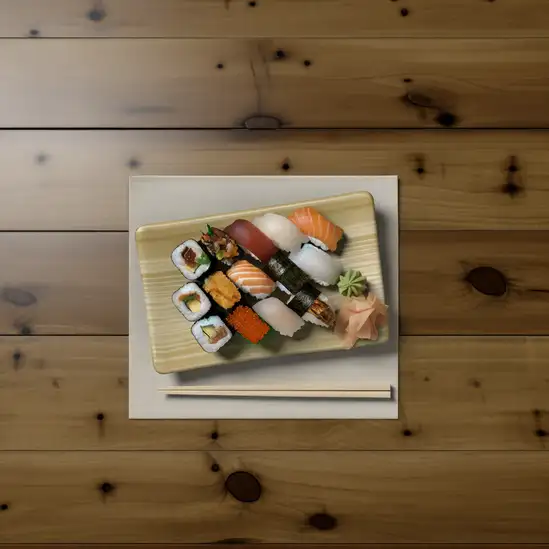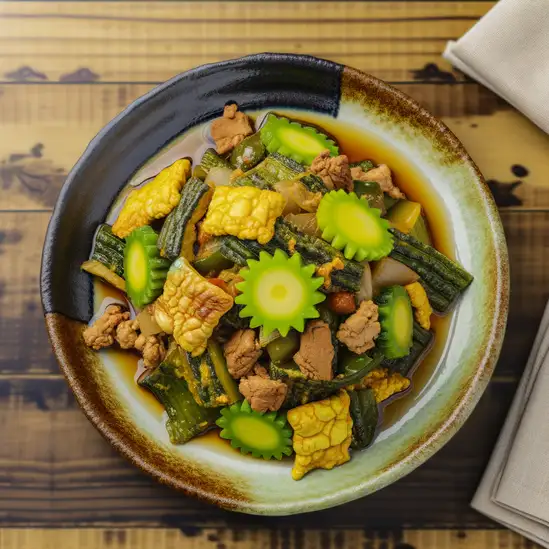


If you ever find yourself wandering through Fukuoka,you’ll immediately notice its effortless blend of energy and ease. It’s a city that hums with life but never feels overwhelming—like a close friend who’s always up for a good time but knows when to slow down. The streets buzz with the chatter of locals and the sizzle of street food stalls,especially around Nakasu and Tenjin,where the aroma of freshly grilled yakitori and rich tonkotsu ramen fills the air,tempting you to stop and savor every bite. There’s a warmth here,not just in the food but in the people,who greet you with genuine smiles and a relaxed hospitality that makes you feel instantly at home. Walking along the waterfront at Ohori Park,you’ll catch the gentle rustle of leaves and the soft ripple of water,a peaceful contrast to the city’s vibrant core. Fukuoka’s character shines in its seamless mix of old and new—from ancient temples tucked between modern buildings to lively festivals that light up the streets with color and music. It’s a place where tradition and innovation dance together,inviting you to explore both the quiet corners and the bustling markets. What really sets Fukuoka apart is its pace—fast enough to keep you intrigued but slow enough to savor. Whether you’re sipping a cold beer at a yatai stall under the stars or wandering through the lively shopping arcades,you’ll feel a genuine connection to the city’s rhythm. It’s a place that stays with you long after you leave,making you eager to return and discover even more.
The information on this page is currently being reviewed by Tripkliq and should be used as a guide only
Eng word: Hello
Eng pronunciation: Konnichiwa
Local language: こんにちは
Eng word: Goodbye
Eng pronunciation: Sayōnara
Local language: さようなら
Eng word: Thank you
Eng pronunciation: Arigatō
Local language: ありがとう
Eng word: How much
Eng pronunciation: Ikura
Local language: いくら
Eng word: Toilet
Eng pronunciation: Toire
Local language: トイレ
Eng word: Help me
Eng pronunciation: Tasukete
Local language: 助けて
Eng word: Yes
Eng pronunciation: Hai
Local language: はい
Eng word: No
Eng pronunciation: Iie
Local language: いいえ
Eng word: Excuse me
Eng pronunciation: Sumimasen
Local language: すみません
Fukuoka's name is derived from its ancient roots as a port city. The name is a combination of 'Fuku,' meaning luck or fortune, and 'Oka,' meaning hill, reflecting the city's geographical and historical significance.
Fukuoka was historically known as Hakata, a prominent port city that played a key role in trade between Japan and the Asian continent. Its rich trading history contributed to the development of Japan's cultural and economic landscape.
Built in the 17th century by the Kuroda clan, Fukuoka Castle is a testament to the city's historical importance during the Edo period. Its remnants, located in Maizuru Park, offer a glimpse into feudal Japan.
Fukuoka has been a vital international trading port since ancient times. The city's port, known as Hakata Bay, facilitated the exchange of goods and cultures, significantly influencing Japan's history and development.
Ohori Park, featuring a beautiful pond that was once part of the Fukuoka Castle's moat system, showcases the city's historical blend of natural beauty and architectural ingenuity, serving as a popular relaxation spot for both locals and tourists.
Dazaifu Tenmangu is a shrine dedicated to Sugawara no Michizane, a scholar and politician revered as the god of learning. It reflects Fukuoka's deep historical connection to education and scholarly pursuits.
The Gion Yamakasa Festival, celebrated for over 750 years in Fukuoka, is a vibrant event showcasing the city's rich history, culture, and community spirit through elaborate floats and energetic races.
Hakozaki Shrine, established in the 8th century, is one of Fukuoka's most important Shinto shrines. It played a significant role in the city's spiritual and cultural history, offering protection for sailors and fishermen.
Kushida Shrine, the spiritual heart of the Hakata Gion Yamakasa festival, is deeply woven into the city's history. Its grounds serve as a place of celebration, cultural expression, and community gathering.
In Fukuoka, the most common Power Adaptor is Type A, Type B.



Fukuoka is known for its fresh seafood, and local sushi often features seasonal fish and shellfish, served in various styles including nigiri and sashimi.

A stir-fry dish featuring goya (bitter melon), tofu, pork, and sometimes egg, seasoned with soy sauce. It's a healthy and hearty meal.

A rich and creamy pork bone broth ramen, often topped with chashu (braised pork), green onions, and pickled ginger. It's known for its thin, straight noodles.

Lotus root stuffed with a spicy mustard miso paste, then sliced and served as a side dish. It's a unique and flavorful local specialty.

A hot pot dish made with beef or pork offal, vegetables, and tofu, simmered in a flavorful broth. It's a popular winter dish in Fukuoka.

Stir-fried udon noodles with a variety of ingredients such as vegetables, meat, and a savory sauce. It's a comforting and filling dish.

Pan-fried dumplings filled with ground pork and vegetables, often served with a dipping sauce. They are crispy on the outside and juicy on the inside.
If you wander into Nagasaki,you’ll immediately notice a gentle blend of history and warmth that wraps around you like a soft breeze off the harbor. This city carries a quiet resilience,where every street corner whispers stories of its past—both joyful and heartbreaking. As you stroll along the waterfront,the salty tang of the sea mingles with the aroma of simmering champon,a local noodle dish that’s as comforting as a warm hug on a chilly day. The colorful houses cascade down the hillsides,creating a patchwork quilt of life that feels both intimate and alive.
Nagasaki’s character is shaped by its unique crossroads of cultures. You’ll hear the faint echoes of Portuguese and Dutch influences in the architecture and the gentle chime of church bells mingling with the hum of bustling markets. The city’s spirit is reflected in its people—friendly,thoughtful,and quietly proud. Visiting the Peace Park or the Atomic Bomb Museum is a moving experience,but it’s balanced by the lively energy of Chinatown,where the sizzle of stir-fry and the chatter of vendors invite you to savor every bite and moment.
What makes Nagasaki truly special is how it embraces both reflection and celebration. Whether you’re watching the sunset paint the harbor in shades of gold or wandering through the lantern-lit streets during the vibrant festivals,there’s a sense of hope and renewal that stays with you long after you leave. It’s a place that invites you to slow down,listen,and feel the heartbeat of a city that’s been through so much—and still shines brightly.
If you ever find yourself craving a place where nature’s raw power meets warm,inviting culture,Kagoshima should be at the top of your list. Imagine waking up to the sight of Sakurajima,an active volcano that looms dramatically across the bay,its occasional puffs of smoke a reminder that this city lives on the edge of something wild and alive. The air carries a faint scent of sulfur mixed with the salty sea breeze,a strangely comforting combo that instantly grounds you in the moment.
Walking through Kagoshima’s streets,you’ll hear the gentle chatter of locals,the clinking of glasses in cozy izakayas,and the distant hum of boats bobbing in the harbor. The city has this laid-back rhythm,a blend of old and new where traditional wooden houses nestle beside modern cafes. Don’t miss trying the local delicacy,kurobuta pork—rich,tender,and bursting with flavor,it’s a taste that lingers long after your meal.
What really makes Kagoshima special is its spirit. The people here carry a proud history,from samurai tales to their resilience against volcanic eruptions,and you can feel that strength in their warm smiles and welcoming gestures. Whether you’re soaking in a hot spring with views of the volcano or wandering through lush gardens,Kagoshima invites you to slow down,breathe deeply,and soak in a place where nature and culture dance together in perfect harmony.
Hiroshima has this incredible mix of quiet reflection and vibrant life that stays with you long after you leave. When you walk through the city,there’s a gentle hum of everyday moments—people chatting over steaming bowls of okonomiyaki,the city’s famous savory pancake,or the soft rustle of leaves in Shukkeien Garden. The air carries a subtle blend of sea breeze and fresh greenery,grounding you in a place that’s both peaceful and full of stories.
What really sets Hiroshima apart is its spirit. The Peace Memorial Park is deeply moving,but it’s not just about history—it’s about hope and resilience. You can feel the city’s heartbeat in the way locals honor the past while embracing the future. Nearby,the bustling Hondori shopping street buzzes with energy,where neon signs flicker and laughter spills from cozy cafes and lively izakayas.
Don’t miss the chance to take a ferry to Miyajima Island,where the iconic floating torii gate seems to float on the water at high tide. The island’s serene forests and friendly deer add a magical touch to your visit. Hiroshima’s warmth isn’t just in its sights but in its people—their kindness and quiet strength make you feel like you’re part of something meaningful. It’s a city that invites you to slow down,listen,and soak in a unique blend of history,culture,and everyday beauty.
Okinawa feels like stepping into a different rhythm of life—laid-back yet vibrant,where the ocean breeze carries a salty sweetness and the hum of cicadas blends with distant laughter. The island’s turquoise waters stretch endlessly,inviting you to dive into coral reefs teeming with colorful fish or simply sink your toes into soft,white sand. As you wander through the streets,the scent of sizzling Okinawan pork and sweet purple sweet potatoes wafts from local eateries,tempting you to try dishes that are both comforting and delightfully unfamiliar.
What really sets Okinawa apart is its unique blend of cultures. You’ll notice the Ryukyu influence in the architecture,the traditional music played on sanshin instruments,and the warm smiles of locals who seem genuinely proud of their heritage. It’s a place where ancient traditions coexist with a relaxed island vibe,creating a welcoming atmosphere that feels both timeless and refreshingly alive.
Beyond the beaches,there’s a quiet magic in the island’s lush forests and historic sites,like Shuri Castle,where you can almost hear whispers of the past. Whether you’re savoring a cup of jasmine tea in a cozy café or watching the sun dip below the horizon,Okinawa invites you to slow down,breathe deeply,and soak in a culture that celebrates life’s simple,beautiful moments.
If you ever find yourself craving a place where the earth literally breathes beneath your feet,Beppu is the spot. This city pulses with a warm,almost otherworldly energy thanks to its famous hot springs that steam and bubble in every corner. Walking through Beppu,you’ll catch the faint scent of sulfur mingling with fresh mountain air,and the gentle hiss of hot water escaping from vents feels like the city itself is alive and exhaling. It’s a sensory experience that’s both soothing and invigorating.
Beppu’s charm isn’t just in its natural wonders but in the way the locals embrace their geothermal heritage with pride and warmth. You’ll find quirky little footbaths tucked into quiet streets where people pause to chat,and traditional ryokans where the tatami mats and sliding doors invite you to slow down and soak in the moment. The city’s character is a blend of old-world Japan and a laid-back,welcoming vibe that makes you feel instantly at home.
Don’t miss the “Hells of Beppu” – a series of colorful,bubbling hot springs that are more spectacle than soak,each with its own personality,from cobalt blue pools to fiery red mud. And when hunger strikes,dive into local specialties like jigoku-mushi,where food is steamed using the natural hot spring steam,giving everything a delicate,earthy flavor. Beppu isn’t just a destination; it’s a warm embrace from nature and culture that stays with you long after you leave.
If you ever find yourself wandering through Matsuyama-shi,you’ll immediately notice a gentle,unhurried rhythm to the place—like the city itself is taking a deep breath and inviting you to do the same. Nestled on Shikoku Island,Matsuyama feels like a perfect blend of old-world charm and everyday life,where the scent of fresh citrus mingles with the salty breeze from the Seto Inland Sea. Walking through its streets,you’ll hear the soft clatter of geta sandals near Dogo Onsen,one of Japan’s oldest hot springs,where locals and travelers alike soak in steamy waters that seem to wash away not just fatigue but time itself.
The city’s character shines brightest in its historic castle perched atop a hill,offering panoramic views that stretch over patchwork fields and the shimmering coastline. As you explore,the delicate aroma of freshly brewed green tea drifts from cozy teahouses,inviting you to pause and savor a moment of calm. Matsuyama’s literary soul is palpable too—home to the famous author Natsume Soseki,you can almost hear the whispers of his stories in the quiet corners of the city.
What makes Matsuyama truly special is how it balances tradition with warmth. The locals greet you with genuine smiles,and the markets buzz with the chatter of vendors selling juicy mikan oranges and freshly caught seafood. It’s a place where every step feels like a gentle discovery,and every sunset paints the sky with a promise of peaceful nights and new adventures. Trust me,Matsuyama isn’t just a stop on your trip—it’s a place that stays with you long after you leave.
Some bars or nightclubs may charge tourists exorbitant prices for drinks or add hidden fees to the bill, especially in entertainment districts.
Shops or street vendors may sell fake branded goods at high prices, claiming they are authentic.
Scammers may pose as charity workers asking for donations, but the money does not go to any legitimate cause.
Scammers may sell counterfeit tickets for events, attractions, or transportation, leaving tourists unable to use them.
Tourists may encounter street gambling games, such as shell games, where the outcome is rigged, and participants are guaranteed to lose money.
Some taxi drivers may take longer routes or claim their meter is broken to charge tourists higher fares.
Unlicensed tour guides may offer their services and charge high fees while providing little value or misleading information.
Japan has very strict drug laws, and this includes Fukuoka. The possession, use, or trafficking of illegal drugs is severely punished, with potential penalties including long prison sentences and heavy fines. Even some over-the-counter medications that are legal in other countries may be restricted or banned in Japan. Tourists should ensure they are not carrying any prohibited substances and should consult with Japanese customs or their embassy if they have any doubts.
In Fukuoka, smoking is generally prohibited in many public places, including streets, parks, and public transportation. There are designated smoking areas where smoking is allowed, and tourists should look for these areas to avoid fines. Restaurants and bars may have specific smoking sections, but it's always best to ask before lighting up.
Vaping is subject to similar regulations as smoking in Fukuoka. It is prohibited in non-smoking areas and public places. Vapers should use designated smoking areas to avoid penalties. Always check for signs and ask if unsure about the rules in specific establishments.
What are other people saying about Fukuoka?
Recent Social posts about Fukuoka
There is nothing to show you for now.